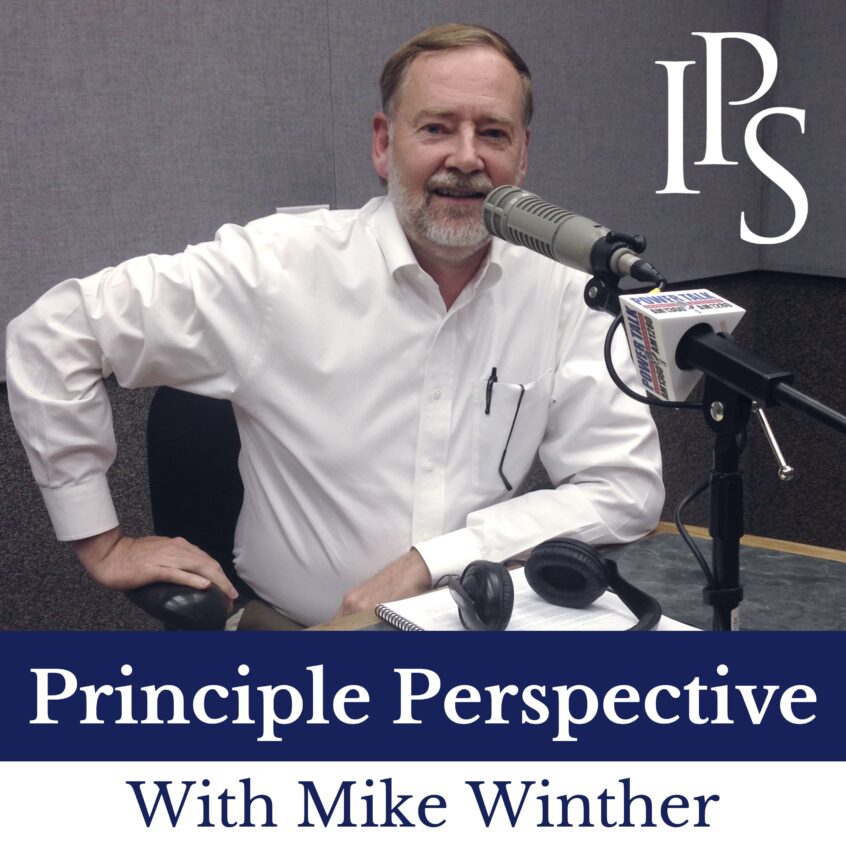LISTEN NOW
Mike Winther dives into the third part of the Constitution Under Siege. He begins with a brief review of the necessary and proper clause. Then he dives into the controversial interpretation of the general welfare clause in the US Constitution.
While some argue that it allows Congress to enact any law promoting the general welfare, the founding fathers intended for it to limit taxation and ensure the nation’s well-being.
He also explores how the commerce clause is often misused to regulate various aspects of society and the concerning trend of executive orders and presidential signing statements which bypass Congress. Ultimately, the conversation revolves around the ongoing debate between those who wish to restrain government power and those who don’t.
You’ll Learn:
- [00:41] The second part of the Constitution that is sometimes used as a huge loophole is the general welfare clause. General welfare is found in the Preamble of the Constitution. A preamble is a statement of purpose.
- [02:07] Article 1 Section 8 of the Constitution says that congress can collect taxes to pay debts and promote common defense and general welfare of the United States.
- [03:03] This is the clause that causes so much difficulty. Just like the necessary and proper argument, people who want big government think Congress can do whatever they want as long as it promotes the general welfare.
- [03:33] This argument violates the enumerated powers concept.
- [04:42] The founding fathers did not intend for the general welfare clause to be a granting of powers. It’s a limitation of power.
- [05:37] General welfare was not redistribution of wealth for payments to help the poor. It was meant to be about the well-being of the country.
- [07:19] The difference between local welfare and general welfare or state of well-being.
- [09:25] The founding fathers often referred to the new republic as the general government. Congress has to pay attention to the general welfare. Powers can’t be used to benefit one geographic region over another.
- [13:48] Thomas Jefferson explained that the general welfare clause was not a grant of power for the general welfare of the people. It was intended to limit taxation.
- [14:43] Congress will not lay a single tax when it’s not to the advantage of the people at large.
- [15:23] Alexander Hamilton said the welfare of the community States is the only legitimate reason where money can be raised from the community.
- [17:16] Original intent of the founding fathers will help clear up any misconceptions about the wording.
- [17:50] General Welfare is not a grant of power, it’s a limitation.
- [18:14] The commerce clause gives Congress power to regulate commerce among the states. The power is there because the states had a tendency to tax goods destined for other states.
- [23:40] The Roosevelt Administration said the reason for the depression was because prices were too low. They set out laws that forced merchants to raise their prices.
- [25:25] They also forced farmers to reduce the amount of food that they produced. A case went to the supreme court where a farmer didn’t reduce his production. The court ruled that they could regulate his production.
- [28:34] The Interstate Commerce Commission created the railroad monopolies. Government uses the Commerce Clause as power to regulate everything.
- [32:58] The real solution should be to fix the cause, not the effect.
- [37:26] Mike talks about the Article 5 Amendment. The states can bypass Congress. This is a way for the states to go around the federal officials.
- [46:19] If we allow people to disregard the Constitution without consequence, what makes us think that yelling is going to make a difference? Why would making the Constitution bigger solve a problem? States are going to send people who like big government.
- [49:02] Convincing people to spend their resources on an ineffective pursuit furthers the opposite cause.
- [49:48] Article 1 Section 1: All legislative power shall be vested in the Congress of the United States. How much legislative power is given to Congress?
- [50:37] An executive order is a president’s attempt to make legislation without Congress.
- [51:32] Both parties have gotten more socialist over the years.
- [53:35] The issue is really about people who want to restrain the government and people who don’t want to restrain the government. Both parties got their training in public schools.
- [55:59] Which article in the Constitution talks about executive orders? None!
- [57:37] A presidential signing statement is something that presidents do when they don’t like a part of the bill.
- [01:00:34] The House of Representatives and Congress really needs to hold everybody accountable.
- [01:03:43] When the church and God’s people are faithful, God will intervene in miraculous ways.

